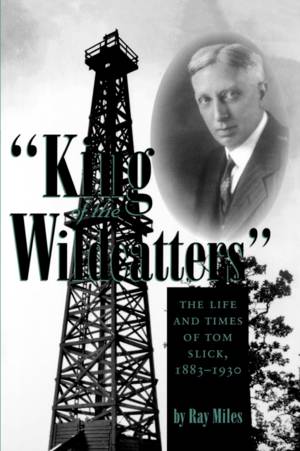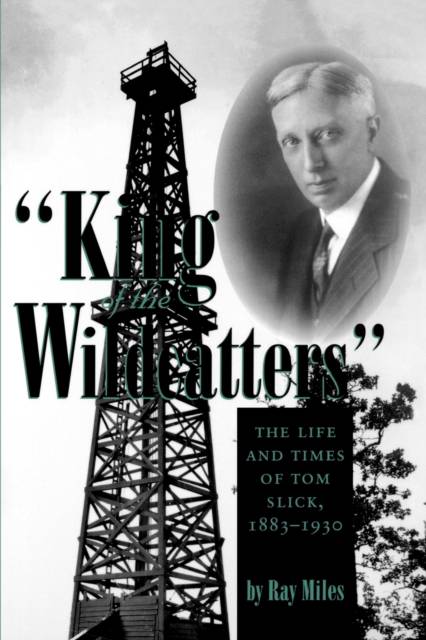
- Retrait gratuit dans votre magasin Club
- 7.000.000 titres dans notre catalogue
- Payer en toute sécurité
- Toujours un magasin près de chez vous
- Retrait gratuit dans votre magasin Club
- 7.000.0000 titres dans notre catalogue
- Payer en toute sécurité
- Toujours un magasin près de chez vous
Description
A legend among oilmen, Tom Slick was an independent operator in the truest sense. His office was his car during his early days of wildcatting the Mid-Continent oil field around 1910. And even after great success brought him to posher surroundings in an Oklahoma City office suite, his style remained hands-on. His impromptu deals were often brokered on street corners and over pay phones in his typical laconic style. Well into the 1920s he was the last of a breed who had no stock holders or board members to answer to, and instead "worked out of his hip pocket." Slick's extraordinary rise paralleled that of the modern petroleum industry. He began his career in the oil fields of western Pennsylvania, the birthplace of the American oil business. Before 1910, he headed west, traveling with his father and brother to the fields of Kansas to work as contract drillers. Slick met with failure in these early years, as he moved on to the new state of Oklahoma in an attempt to locate oil. In 1912 he received the financial backing to drill one more well, which turned out to be the discovery well for the vast Cushing Field. This amazing success was followed by more discoveries of fields--a frenzy of acquiring, drilling, then selling that in 1929 culminated with Slick's sale of his Oklahoma holdings in the Prairie Oil and Gas Company: up until that time, the largest sale of oil properties by an individual. In this first biography of Tom Slick, Ray Miles fleshes out the man who, despite his legendary drive--and the high-profile nature of the oil business--was exceedingly private and withdrawn. Miles relies on newspaper accounts, court and business records, correspondence, and personal interviews with family, friends, and associates to render a portrait of one of the most successful and colorful, yet elusive, businessmen of his day. More than a biography, King of the Wildcatters is a description of the early years of one of America's most important industries; a story of the birth of the oil conservation movement, for which Slick was one of the earliest proponents; and an examination of the first generation of oilmen who went west in search of a fortune in Oklahoma, Kansas, and Texas. Readers interested in the rough-and-tumble wildcatting days of oil exploration and business--and researchers of petroleum and entrepreneurial history--will find in this work a significant contribution to the literature.
Spécifications
Parties prenantes
- Auteur(s) :
- Editeur:
Contenu
- Nombre de pages :
- 178
- Langue:
- Anglais
- Collection :
- Tome:
- n° 9
Caractéristiques
- EAN:
- 9781585443994
- Date de parution :
- 13-03-96
- Format:
- Livre broché
- Format numérique:
- Trade paperback (VS)
- Dimensions :
- 157 mm x 230 mm
- Poids :
- 285 g

Les avis
Nous publions uniquement les avis qui respectent les conditions requises. Consultez nos conditions pour les avis.






